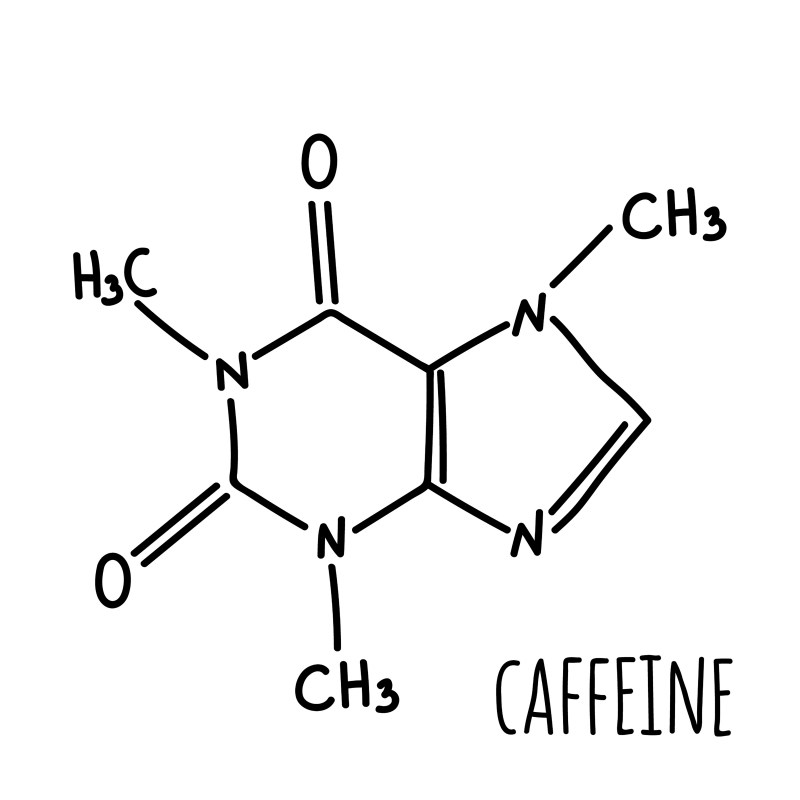We asked two qualified doctors to get to grips with this age old question. They took it seriously, very seriously.
Words By Dr Zameer Brey and Dr Neshaad Schrueder
Originally published in Issue 42, Jan 2023

I treat my coffee with great reverence and I truly believe it makes my life better. Each of the three to four cups of coffee I drink on a daily basis gives me a boost, mentally and physically. With Dr in my title, I often get asked about the risks and benefits of coffee consumption. At least a dozen times this year alone! People often signal to me how they needed to curb their coffee consumption or ‘detox’ from caffeine. I then go on to share the evidence with the intention of allowing people to make more informed decisions about their coffee consumption, to empower current and potential coffee drinkers with good information, ideas and tips that make their daily cups all the better.
To set the scene for a series of articles around the impacts of coffee on health, I decided Dr Neshaad Schrueder- Head of the Department of Internal Medicine at the large Tygerberg Academic Hospital and Dept of Medicine at the University of Stellenbosch, would be the perfect choice. Not only does he come with an enormous amount of experience and skill in looking at evidence for a range of health conditions, he is widely known in the health fraternity for his pragmatist approach, his science leadership and of course, his love for coffee. Beware, this guy doesn’t cut corners when it comes to the black gold, having a home based setup that most of us can only dream about! As medical doctors, when authoring articles, we are obliged to disclose our potential conflicts of interests and affiliations (which you can find at the end). So as an open secret, we are avid specialty coffee drinkers and between us share 5 brewing methods and are both advocates for understanding the benefits (and risks) of coffee consumption using the latest and best science available. Ok so now that’s aside, lets get to the first crack of this roast!
The plan
We wanted to make sure that the information and evidence was packaged in a way that was easy to understand and accessible to most readers and if, there was an appetite for more detail, we would provide the relevant references for people to follow up and get into the geeky details. This has been an exciting and interesting challenge for us both as we started looking at the evidence base on the benefits and harms of coffee. Let’s just say that if this was a good espresso, the benefits would be the juicy, sweet parts in the extracted shot constituting the majority of the espresso and the risks would be the thin layer of bitter crema on the top. This works as a good analogy because people often mistake the crema as the sweet part, just like the risks tend to overshadow the benefits when talking about coffee. We quickly realized the breadth of evidence calls for a more comprehensive approach to really do justice to the topics and foreground the many good scientific studies available. This first article will be an overview of what information currently exists, with a series to follow over coming editions unpacking the different effects of coffee.
Quality of the evidence
The strongest form of evidence in science is those trials that are setup as double blind, randomized controlled clinical trials, where the impact of the new drug or intervention is monitored very closely in a highly controlled and regulated way attempting to eliminate any observational bias. That enables us to interpret its effect with a high level of confidence. If for example, we wanted to see the effect of excessive espresso consumption on heart rate and rhythm in 30-40 year old males, we would conduct such a trial in a lab/ward with trial participants connected to a host of machines and being monitored by a team of clinical trial and medical professionals, attentively recording thousands of data points over many days, weeks or even months. These kinds of trials are often required when testing new medications or vaccines as we want to very certain on the benefit and risks of such. The trials are often very expensive, take years and are subject to intense scrutiny to ensure they adhere to the highest ethical and regulatory standards.
Coffee consumption has not yet been subjected to this level of evidence. Some of the limitations of doing a study of this nature are very technical. Examples of these technicalities are:
The effects we are measuring (like morbidity and mortality ie. illness and death) are influenced by many other parameters so it’s hard to tease out changes due to coffee versus other foods/drinks or lifestyle habits such as smoking or exercise.
Effects on outcomes like illness and death may take years or decades to manifest. This will require a significant amount of money and energy to maintain as a randomized controlled trial.
These types of trials are very particular about these details and will not be considered as good quality unless all of these criteria are met. It will be important that every study participant gets identical forms of test. This makes it much more difficult to prove the theory of the risk or benefits of coffee.
The next best thing after randomized controlled clinical trials in terms of quality of evidence, are large observational studies. These studies simplify the questions and don’t worry too much about the finer details as mentioned above. These are often referred to as ‘population level’ trials. These trials also reflect the ‘real world’ and use tens or hundreds of thousands of people to ‘test’ the theory. Here, the statistical analyses give you greater confidence because the numbers of participants are large reducing the effect of ‘chance’.
The punchline
We have probably kept you guessing for too long about what the jury on coffee really is. Based on our reading of the literature (lots more detail to come in future issues).
There is overwhelming evidence that moderate coffee consumption, 3-4 cups per day, improves morbidity, reduces the risk of a host of cancers, cardiac disease, mental illnesses and reduces your chance of dying from any medical illness. As described above, these data are largely gleaned from large population level observational studies but provide a really strong starting point. There is a small, very small group of persons who suffer from a condition known as caffeine sensitivity which we will also unpack in future.

The latest science
As doctors, we simply cannot write an article without quoting some of the latest scientific understanding coming from the European Society of Cardiology --- it’s a world leader in publishing new science, a bit like how Diego Bermudez is at the forefront of experimental processing in the coffee world.
The facts
This study looked at almost half a million people (449 563 to be exact) to understand the impact of coffee subtypes – ground, instant (believe it or not) and decaffeinated- on cardiovascular outcomes. 4-5 cups of ground or instant coffee consumption was associated with a statistically significant reduction in arrythmias (but not the same was true of decaf). All coffee subtypes were associated with a reduction in cardiovascular disease. In addition, all coffee subtypes consumers were observed to have lower levels of all-cause mortality.
The explanation
Essentially the study followed almost 450 000 people and looked at their average coffee consumption over a period of 12 years and looked at what happened to these people. Participants who drank any form of coffee had lower rates of cardiovascular illness( heart attacks and strokes) and a lower chance of dying from any illness including cancers(all-cause mortality).
Interestingly caffeine containing beverages reduced the incidence abnormal heart rhythms, but decaf did not.
Some facts about coffee:
Coffee contains chemical compounds other than caffeine that are beneficial to your body in many ways:
Coffee has been discussed as a Magical Elixir by leading a Professor of Medicine Sanjiv Chopra in his book titled, you guessed it, “Coffee - The Magical Elixir!”
Conclusion
You are better off drinking any coffee than no coffee at all. There is no evidence of any harm from drinking coffee even in people with heart disease. It appears that the health benefits of drinking coffee are not restricted to the caffeine only, but other substances also offer benefits.
The good news: Coffee lets you live longer so that you can continue to enjoy more coffee!
About the Authors:
Dr Neshaad Schrueder, MBChB, FCP(SA) SCL (Serious Cappuccino Lover)
Dr Zameer Brey, MBChB, MBA, PhD, SPF (Serious Pour-over Fanatic)
Writing in our personal capacities and not associated with our institutions of learning (or coffee circles)
References:
Chieng D., et al, The impact of coffee subtypes on incident cardiovascular disease, arrythmias, and mortality, European Journal of Preventative Cardiology (2022) 00, 1-10
Anahad O’Connor et al: Coffee vs.tea smackdown. The Washington Post. Oct 4, 2022.